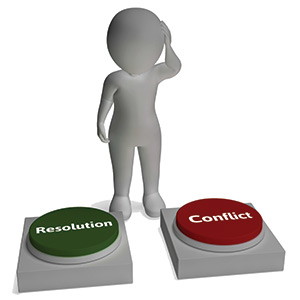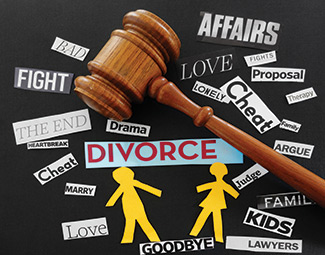Quality dispute resolution starts with listening
By: WISCONSIN LAW JOURNAL STAFF//November 23, 2015//
Quality dispute resolution starts with listening
By: WISCONSIN LAW JOURNAL STAFF//November 23, 2015//
Dan Shaw
[email protected]
Jessica Stephen
Special to the Wisconsin Law Journal
 Despite critics who say that mediation is relied on too much these days, Michael Rust thinks there are even greater opportunities for this type of alternative dispute resolution.
Despite critics who say that mediation is relied on too much these days, Michael Rust thinks there are even greater opportunities for this type of alternative dispute resolution.
For Rust, president of the Wisconsin Association of Mediators, it really comes down to knowing when to pick a fight. Certainly, he says, defendants who have been wrongly accused would be foolish not to stick up for themselves — even if that means pushing a dispute into court.
A trained defense lawyer, he said, can almost always spot this sort of case early on. When the chances of winning are slim to nonexistent, Rust said, then mediation is a good way of doing everyone a favor.
The process not only can lead to a less-contentious outcome that leaves both parties with more satisfaction, but it also helps to reduce the burden on the state’s court system. The second benefit is particular important in an age that has seen court budgets stagnate, Rust said.
“Every time the budget comes through, the Legislature is cutting funding for the courts, said Rust, who is also executive director of the Winnebago Conflict Resolution Center and chairman of the state bar’s dispute resolution section. “The courts need to find a way to handle cases quicker in order to reduce the cost burden.”
When mediation is the best option, Rust said, then the earlier it is entered into, the better.
“I think many times people are waiting for the judge to order them to go and mediate,” Rust said. “And before they do, they have already expended hundreds or thousands of dollars in discovery — when mediation could have been done earlier and they could have come up with a really good result.”
Yet another benefit of mediation, Rust said, is that it can result in resolutions that are often less rigid than those that are typically imposed by courts. A judge, for instance, usually ends up assigning blame in varying degrees to the parties and then doling punishment in accordance with his findings.
Mediation, in contrast, can produce a much more-nuanced outcome.
Elsewhere, others say the benefits of mediation stretching beyond the courtroom. Eva Soeka, an attorney and mediator, says the techniques and practices of alternative dispute resolution are often much better suited to home life than is the pugnacity of a battle-scarred litigator.
“From my experience, both personally and through my students, people are amazed how this has changed their relationships with their teenagers or co-workers, or their spouse, or their adult parents,” said Soeka, director of the Marquette University Graduate Program in Dispute Resolution and founder and director of the school’s Center for Dispute Resolution Education. “It really is amazing when you sit down and have open-ended questions and a problem-solving attitude how much people open up and how you can find a much better resolution.”
Still, for many lawyers, old habits die hard.
“Lawyers typically are educated to identify facts in narrow issues,” she said. “To do that, you usually have to ask very pointed questions. And, if you’ve had a legal education, you think that’s the way to solve a problem. You do it very naturally.
“But I think lawyers take it very for granted, because of their education, that often, for the listener, that can come off as too pointed and too direct, almost an interrogation.”
It’s a common failing, said Linda Albert, manager of the State Bar’s Wisconsin Lawyers Assistance Program.
“Attorneys do talk about how sometimes it’s hard to switch gears,” she said, “from having the role and responsibility of vigorously defending your client and winning the case, then you go home and have a conflict and you vigorously defend yourself to win the argument. It’s natural.”
Changing tactics often starts with embracing some of the same principles attorneys might use professionally, particularly if they’re trained in dispute resolution.
Listening can be a good place to start.
“Give your partner the opportunity to share their views and their points and their goals,” Albert said. “And stay present in that conversation. Don’t sit and think about your retort or reply to win your argument.”
Remember to keep your eyes on the future, Soeka said.
“If you think about it, lawyers are past-oriented; they’re looking for evidence in past facts,” she said. “In dispute resolution, we look at future resolutions. We’re not looking at the past to establish evidence.”
Legal News
- Chicago man sentenced to prison after being caught with ‘Trump Gun’
- FTC bans non-competes
- Gov. Evers seeks applicants for Dane County Circuit Court
- Milwaukee man charged in dismemberment death pleads not guilty
- Democratic-led states lead ban on the book ban
- UW Madison Professor: America’s child care crisis is holding back moms without college degrees
- History made in Trump New York trial opening statements
- Prosecutor won’t bring charges against Wisconsin lawmaker over fundraising scheme
- Republican Wisconsin Senate candidate says he doesn’t oppose elderly people voting
- Vice President Harris to reveal final rules mandating minimum standards for nursing home staffing
- Election workers fear threats to their safety as November nears
- Former law enforcement praise state’s response brief in Steven Avery case
WLJ People
- Power 30 Personal Injury Attorneys – Russell Nicolet
- Power 30 Personal Injury Attorneys – Benjamin Nicolet
- Power 30 Personal Injury Attorneys – Dustin T. Woehl
- Power 30 Personal Injury Attorneys – Katherine Metzger
- Power 30 Personal Injury Attorneys – Joseph Ryan
- Power 30 Personal Injury Attorneys – James M. Ryan
- Power 30 Personal Injury Attorneys – Dana Wachs
- Power 30 Personal Injury Attorneys – Mark L. Thomsen
- Power 30 Personal Injury Attorneys – Matthew Lein
- Power 30 Personal Injury Attorneys – Jeffrey A. Pitman
- Power 30 Personal Injury Attorneys – William Pemberton
- Power 30 Personal Injury Attorneys – Howard S. Sicula









